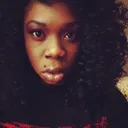Does Race Affect Medical School Acceptance Rates?

© Rob / Fotolia
“I mean… I’m a white guy so it’s harder now for me to get in (to medical school).” My heart sank when I heard these words. As hard I tried, I couldn’t shake the feeling that my medical degree was being perceived as less valuable or that my personal sacrifices to obtain it wasn’t insignificant because of my race. This wasn’t the first time I’d heard this belief that Black/ African-American students have higher rates of admittance to medical school than white students, and I wanted to find out myself it is was true.
The statistics
During the 2015-2016 application cycle, the Association of American Medical Colleges (AAMC) reports that there were 12, 289 Black/ African-American applicants to U.S. medical schools. The highest number of acceptees had a MCAT score of 24-26, with a total of 4,446 total Black acceptees (36.2%) to medical school. Comparatively, there were 79,260 White applicants to U.S. medical schools, with the highest number of acceptees (12, 033) having a score of 30-32. In all, there were 35,789 White acceptees (45%). For the academic year 2014-2015, there were 1,061 Black graduates versus 10, 992 White graduates out of a total 18,705 graduates. Per reports, acceptance by gender is nearly 50/50.
What does this mean?
Simply put: it’s not other races hindering your acceptance to medical school, as it appears the competition lies with applicants of your own race. This can be a tough pill to swallow, but it only reinforces the fact that medical school admission is competitive, and you have to find ways to make yourself stand out from the crowd…whatever that crowd may be. According to the U.S. Census Bureau, there were 45 million Black Americans, either alone or in combination with other races, in July of 2013, of an estimated 316 million total Americans. Black/African-American physicians made up only 5.7% of medical school graduates in 2015 recorded by the AAMC.
How do I use this information going forward?
It’s almost application season, which means it’s time to start writing your personal statement. The personal statement is the one place where you can shine the most; it’s the most memorable part of your application. Do some soul-searching. What makes you unique? What was a pivotal moment in your life, and how can you relate that to a career in medicine? Being a physician entails healing the sick and preventing future illness; that responsibility requires an enormous amount of maturity, humility, and flexibility. It’s not enough to just have the good GPA and MCAT score; although they get a foot in the door.
The conclusion
In my opinion, the only “advantage” African-Americans may have is having had to live through adverse situations because of race, which would force anyone to either reflect and mature or fail. I had a traumatic early childhood that reinforced my passion to help the medically and emotionally underserved. I worked 20-30 hours a week to supplement my scholarships and grants, took 12-15 credits a semester, volunteered, and assisted in research studies while I was an undergraduate. My background, including overcoming my financial hardships to excel in college, helped differentiate me from my peers during medical school and residency application season. I went into interview season confident because I had already outlined why I was unique and what my passions were.
Now, it’s up to you!
Related Posts
